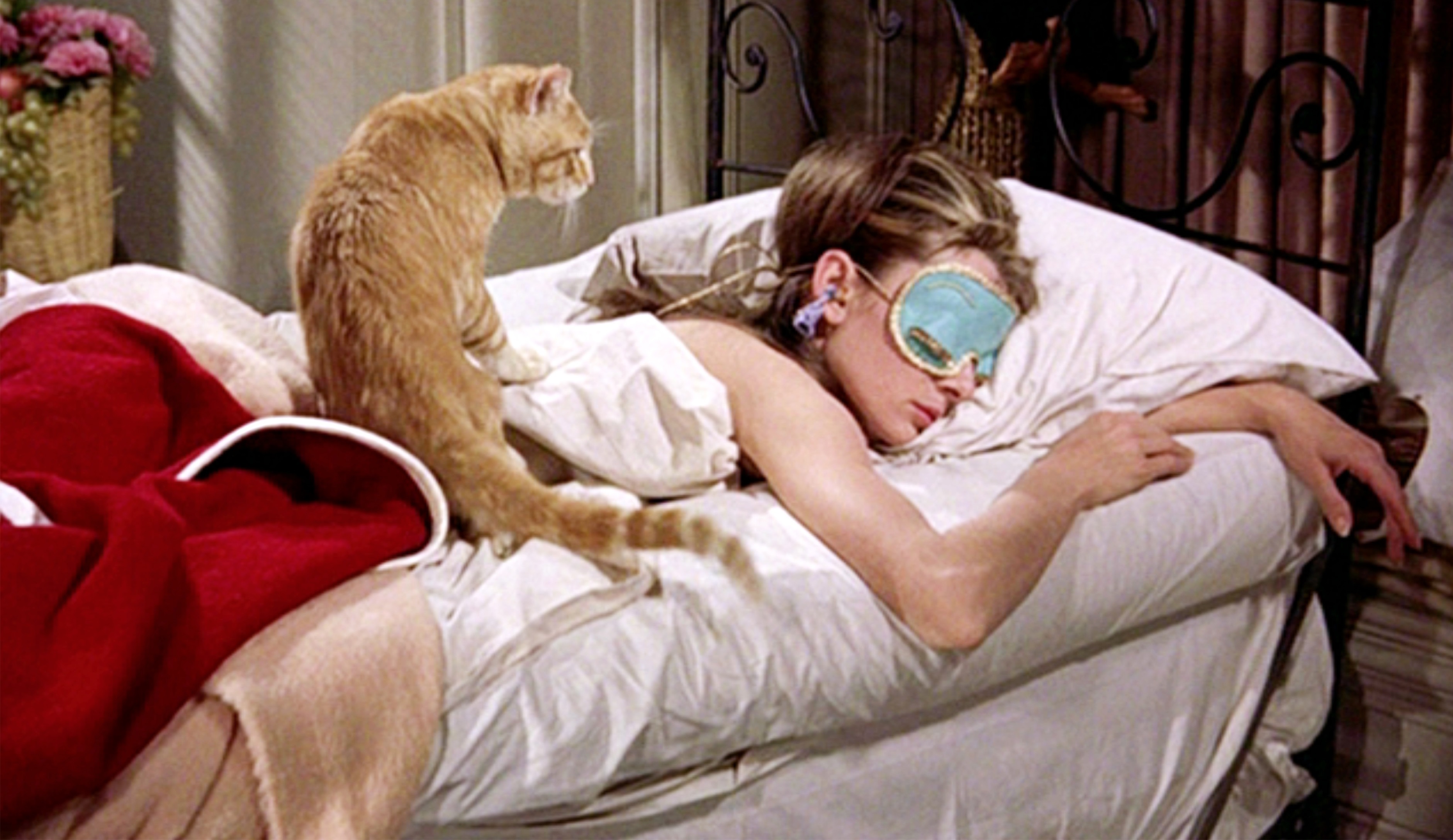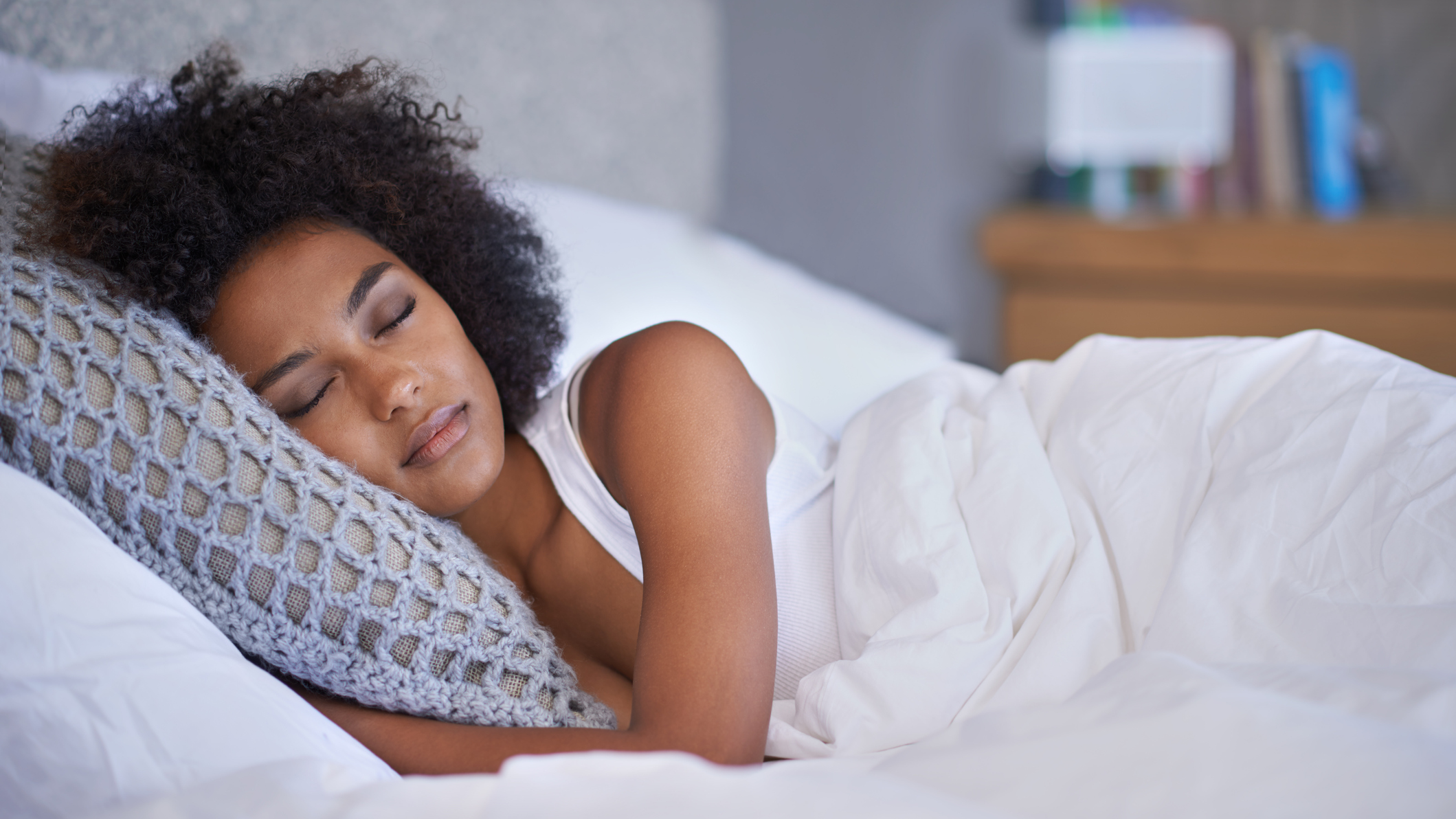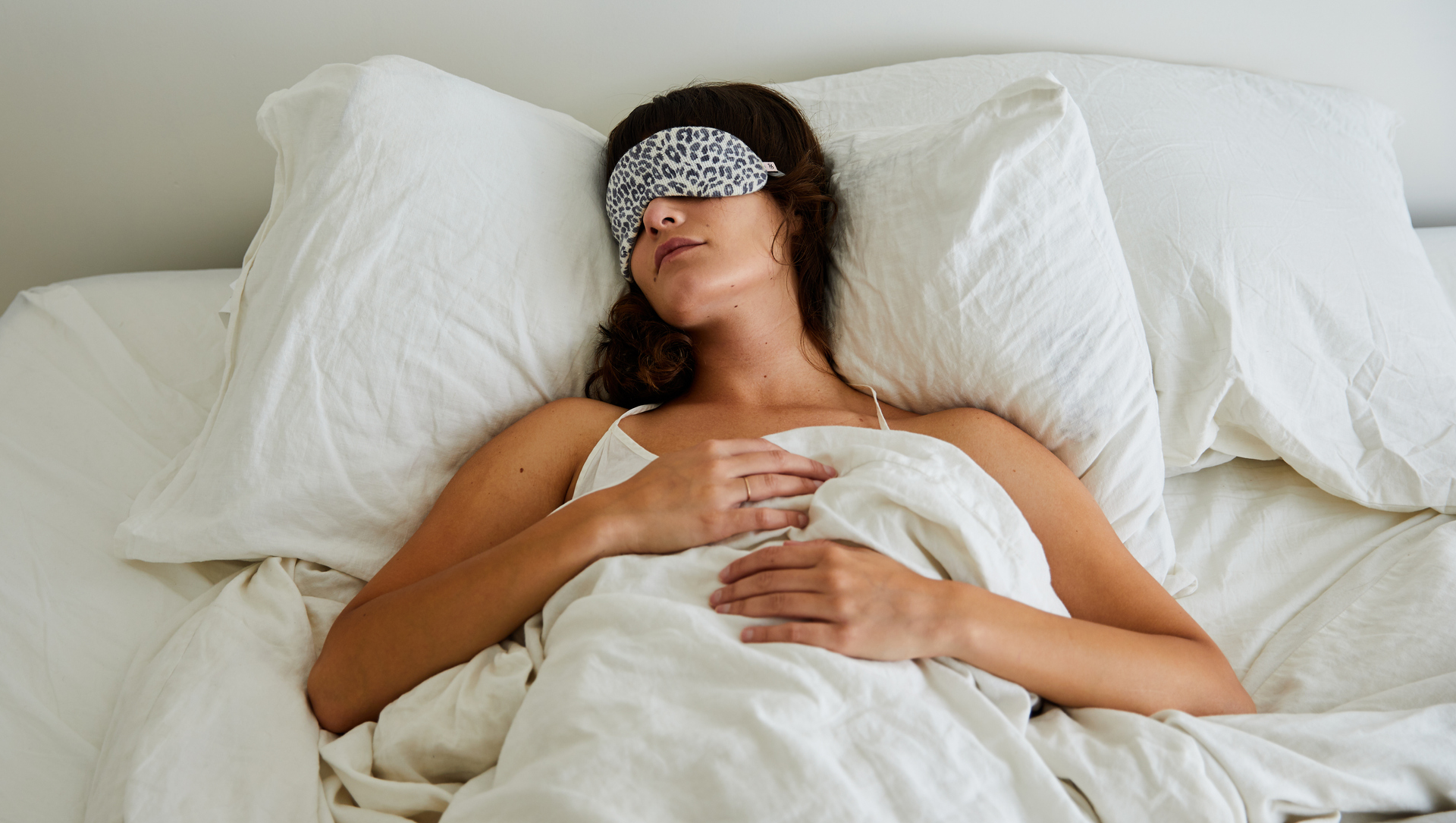How to fall back asleep if you wake up in the middle of the night
Awake at 3am? Here’s how to fall back asleep without scrolling on your phone, according to the experts

Knowing how to fall back asleep is essential for those of us who struggle to drift off in the depths of the night. Because alongside forgetting your umbrella when it's raining and chipping fresh nails just after a trip to the salon, there are few things more frustrating than finding yourself up and alert like clockwork in the wee hours. To make matters worse, it often happens right when you've got an important day ahead of you—when you need all the energy you can muster.
If you're keen to find out how to fall back asleep again in the middle of the night, rest assured that there are a number of simple steps you can take. We've called on the experts to explain just why you're so susceptible to finding yourself up at 3am, and all the ways you can nod off again. Their tips include a technique to calm a racing mind (for the pesky anxiety that often rears its head at night) and why practicing gratitude can help lull you back into a restful slumber.
So, along with investing in the best sleep aids, you'll be able to experience all the benefits that come with getting quality shut-eye. Need a small reminder? The benefits of sleep include glowy skin, a boosted immune system, improved sex drive and raised mood—which we've certainly got time for!
Why you often wake up in the middle of the night
“It is perfectly normal to wake during the night,” says Dr. Guy Meadows, clinical lead and co-founder of Sleep School. "Sleep is made up of three stages—light, deep and Rapid Eye Movement (REM) sleep. Each stage has a different job, including growth and repair, mood regulation and memory processing."
"Human evolution has meant you cycle between all three stages every one-and-a-half to two hours—hence why many wake up at around 3:30am each night. It’s hypothesized that such brief awakenings are a survival mechanism, allowing us to check for danger.”
But if it’s happening regularly then it’s not ideal. “If you wake up and struggle to get back to sleep regularly—meaning on at least three nights per week—then you could be suffering from sleep maintenance insomnia," explains Dr. Kat Lederle, a sleep scientist at Somnia and the author of the book Sleep Sense.
"The more you try to nod off again, the harder it gets and your frustration grows. What’s more, your mind suddenly decides to do all its thinking and planning for the next day. While all these thoughts are predictions, they reel you in and you start to feel anxious—and so you end up feeling more alert than when you first woke up.”
Luckily, there are steps you can take to ease out of this cycle, to learn how to get better sleep...

How to fall back asleep, according to the experts
1. Get out of bed
Yes, really. “The worst thing you can do when you can’t sleep, and you feel frustrated and anxious, is to stay in bed,” says Kathryn Pinkham, NHS insomnia specialist and founder of The Insomnia Clinic. “Staying in bed will encourage the building of a relationship between bed and wakefulness, which can be hard to break."
So, often, getting out of it can be the best bet. "While it might seem counterintuitive, get up leave the bedroom and only return when you feel sleepy again to break this bond," suggests Pinkham. "Also, remember the belief that everyone must get eight hours of sleep is a myth—most people need between six and eight hours to function effectively during the day. So, if you find yourself waking and worrying about not getting eight hours, you can remove this particular worry from your mind."
Essentially, the worst thing you can do when you wake up at night is count how many hours of sleep you need!
2. But if you do get up, remember to stay relaxed
Getting out of bed is a great tip—but don't jump out of bed too soon, and try to stay half-asleep (or nicely relaxed) if possible.
"How you respond to nighttime waking determines whether you shift into a state of active wakefulness—akin to the daytime—or remain in quiet wakefulness, the bridge state to sleep,” notes Dr. Meadows. “Unsurprisingly, engaging in daytime activities—such as checking your emails or social media, switching on the light to read, or getting up to make a drink—may wake you up further."
The temptation to pick up your device from your bedside may be huge, but give yourself a decent chance to slip off again first. "Choosing to stay in bed and rest in a state of quiet wakefulness offers many benefits similar to sleep including energy conservation, repair and memory consolidation," adds Dr. Meadows.
3. Distract yourself with mindful meditation
Has your mind already gone to tomorrow's to-do list? Try distracting it by being mindful with your body. "Wriggle your toes and feel your feet, especially if you notice that you're immediately starting to disappear up into your head worrying and ruminating," says Dr. Nerina Ramlakhan, a neurophysiologist, sleep expert and author of The Little Book of Sleep.
“Place your hands on your belly and chest, and allow the weight of them to guide you back into your body. Start to notice the natural rhythm of your breathing, repeating the words 'in' and 'out' silently.”
“Another technique—particularly good if you are worrying—is to think about something that happened in your day that you are grateful for,” continues Dr. Ramlakhan. “It might be something very small, like a nice message from someone or a hug. Allow yourself to feel the gratitude and say or think 'thank you'. Doing this brings a sense of safety into the body and mind. This is one of the best morning rituals too, for a good start to your day.”

4. Don't use your tech—and if you do, use the right apps
One of the first things we all do when we don't know how to fall back asleep, is reach for our phones. But this is totally at odds with our desire to get back to sleep. “Remove distractions; notifications or lights emitted by technology have the potential to wake us up," warns wellness coach Joanna Shurety. "Make your room a haven of calm and peace, so that it remains quiet and dark.”
But, tech can still have a place. “Mindfulness apps, like the Calm app, are great—just make sure you don't have anything pinging on your phone. You can always mute notifications past a certain time of night," notes Shurety. "If you really struggle to drift back off, then listening to a meditation app will help guide you through relaxation, and get your body back to a calm state.”
5. Don't endlessly fight against your body
Because fighting will only make things worse. “Next time you wake at night, simply notice that you have woken up,” says Dr. Lederle. “Notice what your mind has to say about this. Notice what shows up in your body; frustration, anxiety or tension. Notice all of this in an objective, judgment-free way.
"Once you have observed your mind and body, choose to gently shift your attention and take a breath in and out to really ground yourself in the present moment. And then comes the last piece—allow yourself to be awake." This could in fact lead you to sleep. "In doing so, you end the struggle with wakefulness," continues Dr. Lederle.
"When you stop struggling, your body can calm down—and from there it is just a small step back to falling asleep again. Allowing something is not the same as liking or wanting it. It’s a choice that is based on the realization of what is within, and what is outside of your control. After all, sleep is a natural process that cannot be controlled, no matter how much willpower you have.”
Lauren is a freelance writer and editor with more than six years of digital and magazine experience. Most recently, she has been the Acting Commissioning Editor of Women's Health—where she co-produced the Going For Goal podcast—and has previously also written news and features for titles including The Telegraph, Grazia, Stylist, Dazed, The Sun's Fabulous, Yahoo Style UK and Get The Gloss. She covers all aspects of lifestyle, specializing in health, beauty, and travel. Can't live without: oat milk lattes, new podcast episodes, long walks, and great skincare.